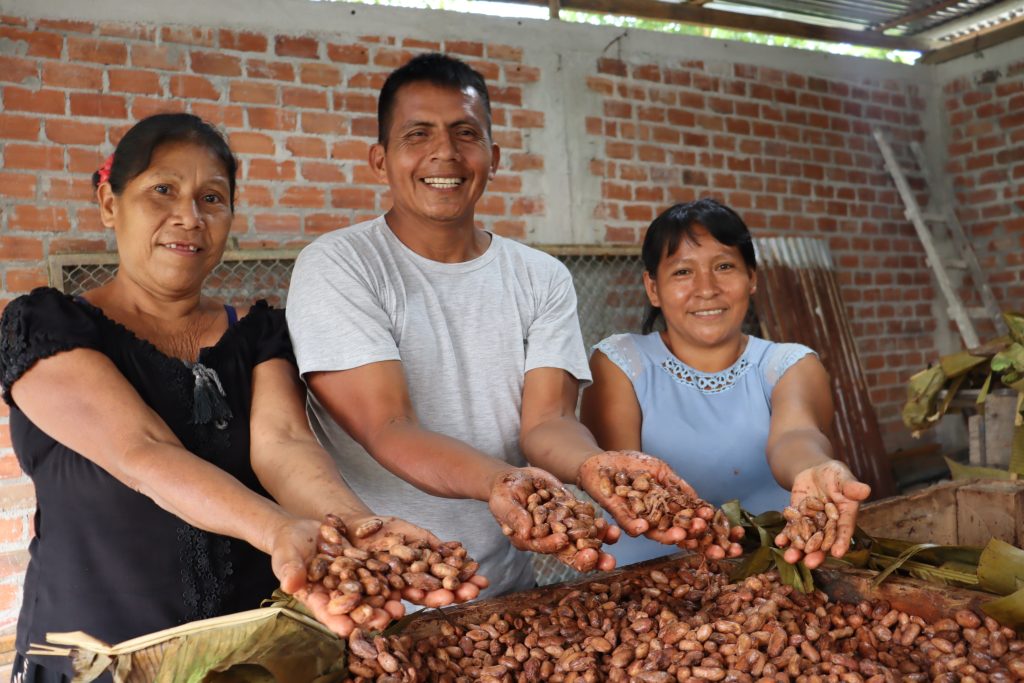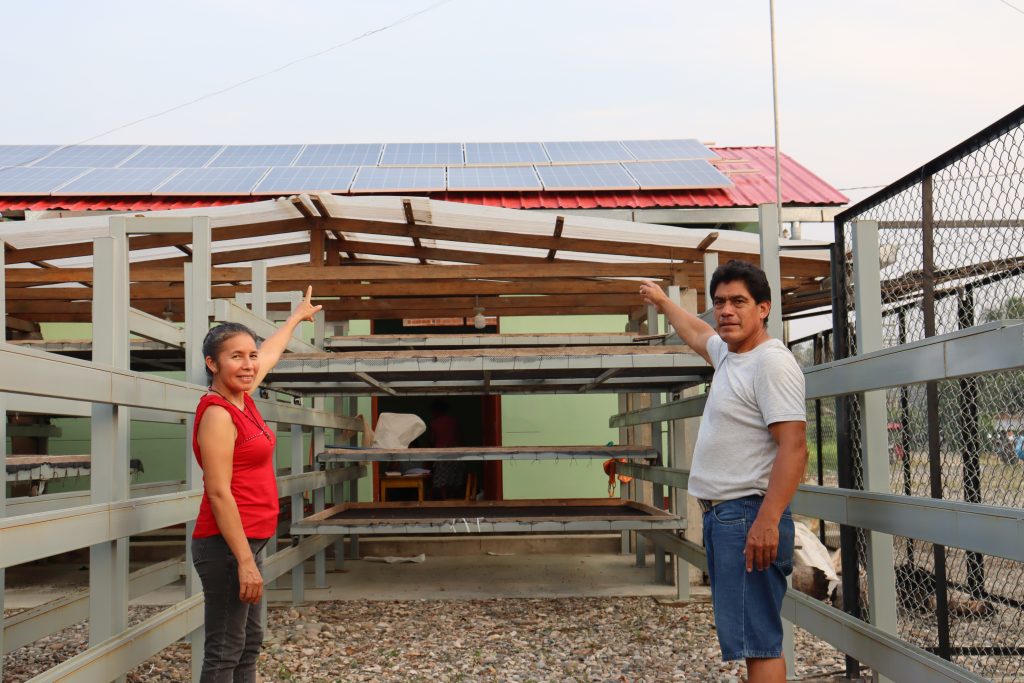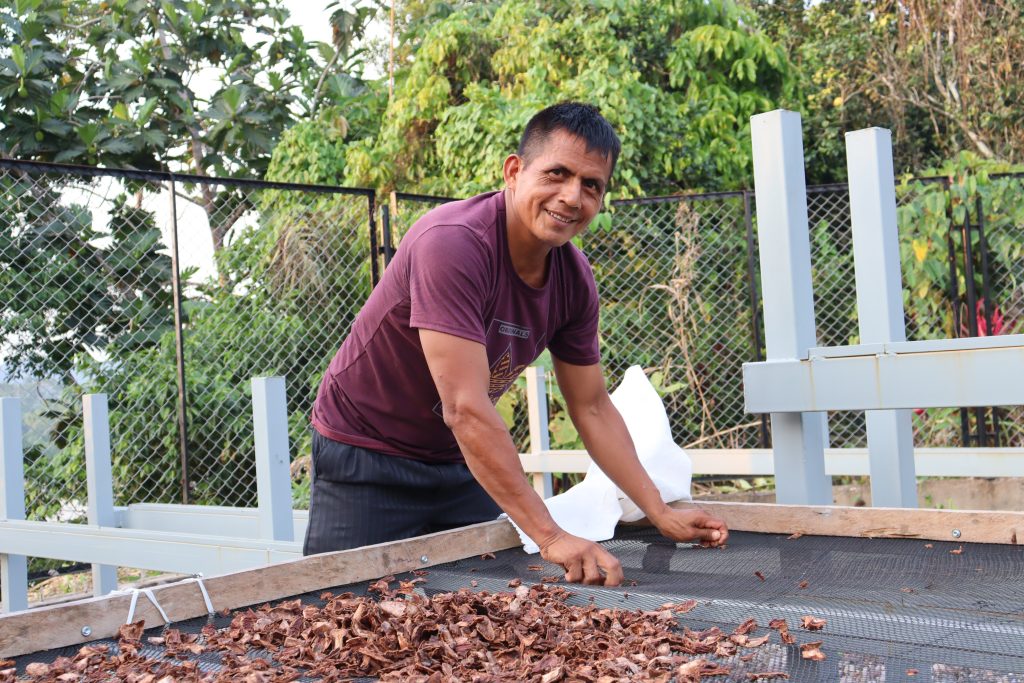More chocolate means a better future
Chocolate bars, cacao juice, hot chocolate and cacao-based jams are just some of the tasty cacao-based products that you can now find in the Awajún community of Urakuza, in the middle of the Amazon rainforest.
A new era for Awajún cacao
As of July 2022, Urakuza opened its first-ever chocolate factory, where all things cacao are created for the pleasure of its customers.


Post-harvest team at chococate fabric in Urakuza
Flor Jara is in charge of operations and post-harvest at the factory and is committed to teaching and training each participant in this project. She tells us that:
“Transforming the raw cacao to chocolate products adds value and makes the business more successful. This month, we have succeeded in diversifying our range of products, which means the volume of sales has increased. It’s also been great to participate in fairs to raise awareness of our products. We plan to have a stronger presence in these spaces so that more people know about our incredible work: local and regional fairs, and why not, even national ones. We will continue to grow one step at a time.”
Breaking barriers
Up until now the main barrier to transitioning from low production to an economically sustainable production has been access to electrical power and machinery. In a remote area like the rainforest, electricity is a luxury. And, when people are lucky enough to have it, regular power cuts are the norm. Not only does this hinder commercial activities but this also has a profound effect on a household’s ability to store food or carry out their daily activities.


Flor Jara and Hector showing us the solar panels
A sell-out shop
Wilson Barturen, Cool Earth’s local coordinator for the Awajún partnerships, explains that the demand for Urakuza’s cacao products has already exceeded what the team can produce:
“The response has been massive, to the point that there is already a shortage of supply. Local people contribute to that because these items are eaten as part of the traditional Awajún diet. The majority of processed teas and coffees lack protein, whereas the cacao we are producing has plenty and is also a great source of antioxidants. People in the villages see huge benefits for their diets and consume these products we make daily.”
Thanks to new solar panels now powering the factory, the team is hopeful that demand can be met. Machines like; winnowers, which remove the shell of the beans, melangers, which are used for conching (a vital process for chocolate’s final texture and flavour), grinders and ovens will finally be able to operate with a reliable source of electricity.


Leonel, a member of the Awajún community and the production team
Leonel, a member of the Awajún community and the production team, tells us that he also consumes cacao juice with his children and that many things have improved since they started working making products out of cacao. “As Awajún people, we want to continue learning … so that we can eventually lead and guide the project ourselves. There is a need for what we produce. We sell it or consume it every day. We want to invest all our earnings in buying medicine, and investing in education for our children.”
Projects like this enable social and economic resilience that helps rainforest communities leapfrog threats to their land. There’s a lot of sweet, sweet news about chocolate coming your way over the next few weeks so keep checking in. We want to send our special thanks to the players of the People’s Postcode Lottery who have helped make all of this happen. Find out more about the people powered projects your cash funds here.
